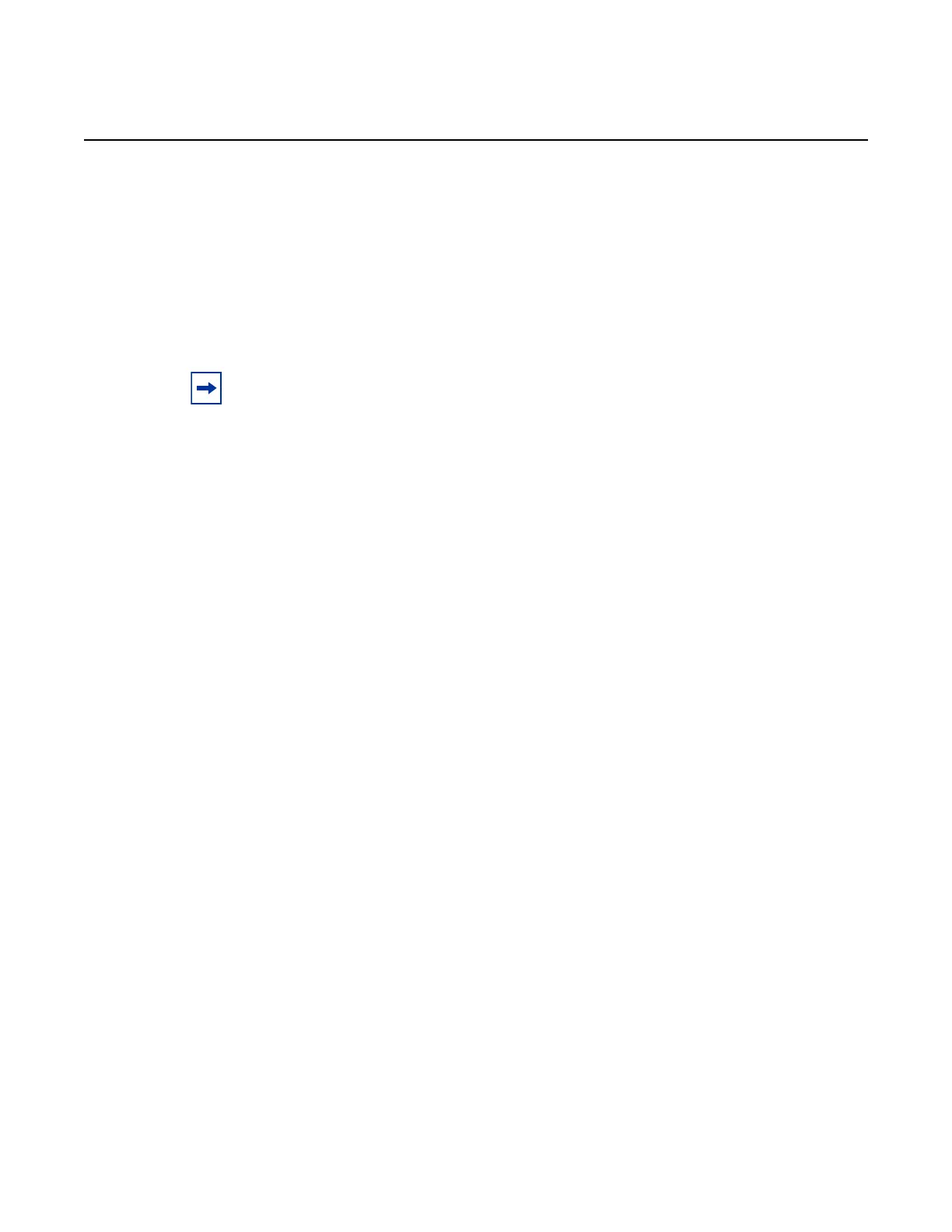Interface Configuration Guide 7705 SAR Interfaces
Edition: 01 3HE 11011 AAAC TQZZA 85
When a port enters the failed condition as a result of crossing an SF threshold, the
port is not automatically returned to service. Because the port is operationally down
without a physical link, error monitoring stops. The operator can enable the port by
using the shutdown and no shutdown port commands or by using other port
transition functions such as clearing the MDA (clear mda command) or removing the
cable. A port that is down due to crossing an SF threshold can also be re-enabled by
changing or disabling the SD threshold. The SD state is self-clearing, and it clears if
the error rate drops below 1/10th of the configured SD rate.
3.2.8.3 Remote Loopback
EFM OAM provides a link-layer frame loopback mode, which can be controlled
remotely.
To initiate a remote loopback, the local EFM OAM client sends a loopback control
OAMPDU by enabling the OAM remote loopback command. After receiving the
loopback control OAMPDU, the remote OAM client puts the remote port into local
loopback mode.
OAMPDUs are slow protocol frames that contain appropriate control and status
information used to monitor, test, and troubleshoot OAM-enabled links.
To exit a remote loopback, the local EFM OAM client sends a loopback control
OAMPDU by disabling the OAM remote loopback command. After receiving the
loopback control OAMPDU, the remote OAM client puts the port back into normal
forwarding mode.
When a port is in local loopback mode (the far end requested an Ethernet OAM
loopback), any packets received on the port will be looped back, except for EFM
OAMPDUs. No data will be transmitted from the node; only data that is received on
the node will be sent back out.
When the node is in remote loopback mode, local data from the CSM is transmitted,
but any data received on the node is dropped, except for EFM OAMPDUs.
Remote loopbacks should be used with caution; if dynamic signaling and routing
protocols are used, all services go down when a remote loopback is initiated. If only
static signaling and routing is used, the services stay up. On the 7705 SAR, the
Ethernet port can be configured to accept or reject the remote-loopback command.
Note: CRC monitoring is not supported on GPON or DSL ports.
